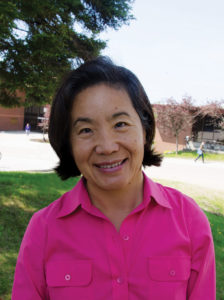Guest Lecturer Lanyan Chen from Nipissing University, Canada will talk on the topic of Gender Statistics and Local Governance in China on Tuesday 24th May at 5.30pm.
ABSTRACT
Gender statistics provide an essential tool to mainstream gender equality in policymaking through the recognition of gender differences in all fields of life. It is a legacy of feminist movements since the 1970s to bring forth recognition of challenges women face differently from men in order to effect substantive equality.
This talk identifies the lack of gender statistics in China’s statistical systems and its negative impacts on local policymaking based on the findings of a project carried out in three local districts of Tianjin. From a feminist political economy perspective, Lanyan Chen argues that gender statistics will not find its way into policymaking, which is a process in China built upon centralized statistical reporting systems that serve the senior governments more than local communities. It is her suggestion that policymaking is a site of contestation whereby community activists demand the use of gender statistics to assist policies to promote equality.
BIOGRAPHY
 Lanyan Chen, is an Associate Professor of Social Welfare and Social Development, holds a PhD in Sociology from the University of British Columbia and a Master’s in Communications from Simon Fraser University. She publishes in both English and Chinese and brings a perspective of feminist political economy to her areas of research.
Lanyan Chen, is an Associate Professor of Social Welfare and Social Development, holds a PhD in Sociology from the University of British Columbia and a Master’s in Communications from Simon Fraser University. She publishes in both English and Chinese and brings a perspective of feminist political economy to her areas of research.
Her publications in areas of gender issues and inequality, the women’s movement, health and welfare, and public policy, includes a book entitled Gender and Chinese Development: Towards an Equitable Society (Routledge, 2008), and many book chapters and journal articles in Feminist Economics, Development and Change and China Quarterly.
While her published research has mostly focused on China, she is increasingly doing research on these issues in Canada and other countries using comparative perspectives. As a researcher, she takes her role seriously in spreading knowledge and working with people to think of a way forward. This approach reflects her experiences with several United Nations appointments including the UNIFEM Gender Advisor for Northeast Asia based in Beijing from 1998 to 2003, a position where she was able to create change through projects, campaigns and mobilization of people and communities.
She has had numerous appointments as a Gender Expert, working on the design, implementation, and evaluation of large-scale projects and programmes in support of compliance to international human rights norms and standards. She also initiated situational analyses by way of surveys and field visits; interviews and focus groups; and led training workshops on participatory, action-oriented methodology (PAR); gender analysis; human rights norms and standards; gender statistics; social assessment; and survey design for projects.
Her most recent participation in the evaluation of the United Nations Population Fund country program in China is available here.
Gender Statistics and Local Governance in China
Business School Lecture Theatre 2
29 Buccleuch Place, Edinburgh, EH8 9JS
From: 5.30 till 7pm including Q&A
All Welcome
This lecture will be followed by a drinks reception



